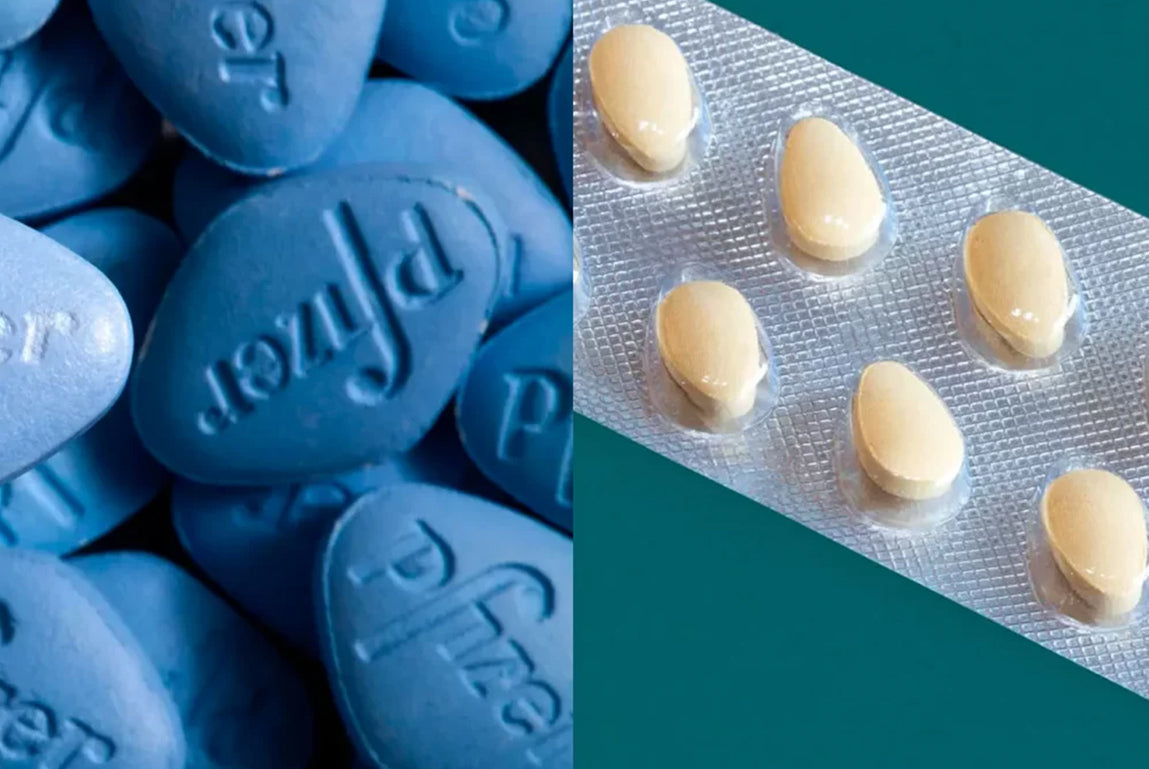

In the realm of pharmaceuticals aimed at treating erectile dysfunction (ED), two prominent names often dominate the conversation: Viagra and Cialis. Both medications have garnered significant attention and widespread use since their introduction. However, despite sharing a common goal, they exhibit distinct characteristics that set them apart. Understanding the differences between Viagra and Cialis is crucial for individuals seeking the most suitable treatment for their specific needs.
Viagra and Cialis: Mechanism of Action
Viagra, also known by its generic name sildenafil, and Cialis, with its generic name tadalafil, belong to a class of drugs called phosphodiesterase type 5 (PDE5) inhibitors. These medications work by enhancing the effects of nitric oxide, a chemical naturally produced in the body that relaxes smooth muscles in the penis. This relaxation increases blood flow to the genital area, facilitating an erection when sexual stimulation occurs.
Viagra and Cialis: Duration of Action
One of the most significant differences between Viagra and Cialis lies in their duration of action. Viagra typically remains effective for about four to six hours after ingestion. In contrast, Cialis boasts a much longer half-life, offering efficacy for up to 36 hours. This extended duration has earned Cialis the moniker "the weekend pill," as it provides men with greater flexibility in choosing the timing of sexual activity.
Viagra and Cialis: Onset of Action
Viagra tends to act more rapidly than Cialis. While Viagra typically takes effect within 30 to 60 minutes after ingestion, Cialis may require up to two hours to reach peak effectiveness. However, Cialis offers the advantage of a longer window of opportunity due to its prolonged duration of action, allowing users to plan sexual activity with less immediacy. With both of these, it is advised to take on an empty stomach.

Viagra and Cialis: Dosing Regimens
Viagra
Viagra is typically prescribed in doses ranging from 25mg to 100mg, with 50mg being the most common starting dose. Patients are advised to take Viagra approximately one hour before sexual activity, with or without food, although consuming a heavy meal beforehand may delay its onset of action.
Cialis
Cialis comes in lower doses for daily use (2.5mg or 5mg) or higher doses for use as needed (10mg or 20mg). The daily dosing option is designed for men who anticipate frequent sexual activity, providing a low-dose regimen that maintains steady levels of the drug in the bloodstream. On the other hand, the as-needed dosing regimen involves taking a higher dose about 30 minutes to two hours before sexual activity.
Viagra and Cialis: Side Effects
Both Viagra and Cialis may cause side effects, though they are generally well-tolerated. Common side effects include headache, flushing, indigestion, nasal congestion, and dizziness. In rare cases, individuals may experience more severe adverse reactions, such as sudden vision or hearing loss, chest pain, or priapism (prolonged erection). It's essential to consult a healthcare professional if any concerning side effects arise.
Conclusion
While Viagra and Cialis share a common mechanism of action and are both effective treatments for erectile dysfunction, they differ significantly in terms of onset and duration of action, dosing regimens, and side effect profiles. The choice between Viagra and Cialis often depends on individual preferences, lifestyle factors, and the desired duration of effectiveness. Consulting with a healthcare provider is crucial to determine the most suitable option based on each patient's unique needs and medical history.








